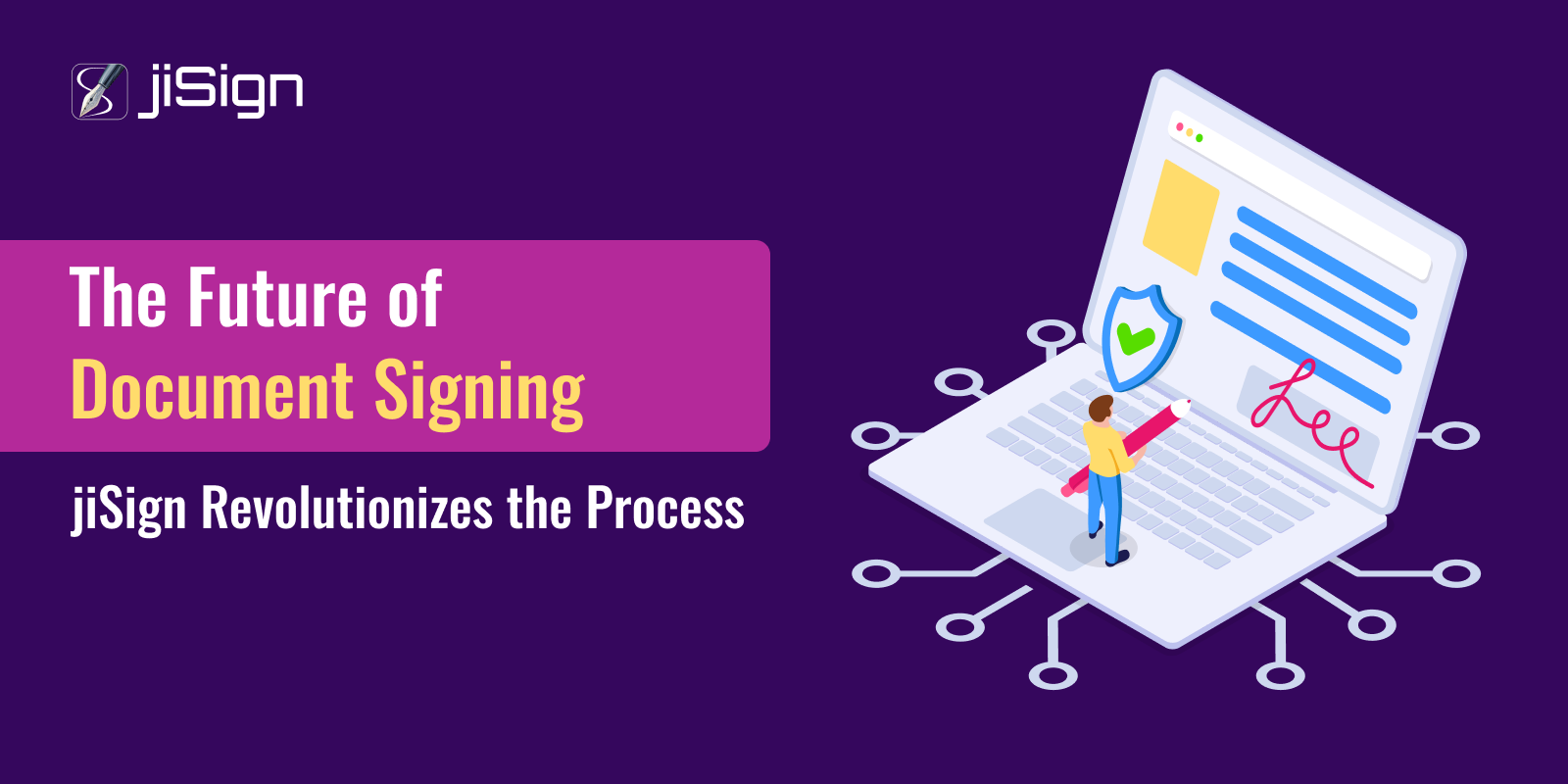The digital transformation has profoundly impacted various aspects of our lives, and document signing is no exception. As businesses and individuals increasingly rely on technology, the traditional methods of signing documents are being replaced by more efficient, secure, and convenient alternatives. Among these innovations, jiSign stands out as a revolutionary solution that is reshaping the future of document signing. This blog explores the evolution of document signing, the advantages of electronic signatures, and how jiSign is leading the charge in this transformation.
The Evolution of Document Signing
The global eSignature market is projected to grow significantly, with estimates suggesting it could exceed $14 billion by 20265. This growth reflects a broader trend towards digitization in various sectors, including finance, real estate, and legal services. E-signatures offer numerous benefits over traditional methods, including speed, security, and convenience.
These legal frameworks have paved the way for widespread adoption of e-signatures across industries. Organizations can now execute contracts and agreements faster and with greater confidence in their legality.
Advantages of Electronic Signatures
Blockchain technology further enhances the security of electronic signatures by providing a decentralized and tamper-proof method for verifying identities and transactions. Blockchain can create an immutable record of each signature event, ensuring that documents remain secure throughout their lifecycle.
This efficiency is particularly beneficial for businesses that require quick turnaround times for contracts or agreements. By adopting e-signature solutions like jiSign, organizations can significantly reduce administrative overhead and accelerate their operations.
The Role of jiSign in Revolutionizing Document Signing
User-Friendly Interface: jiSign stands out in the crowded e-signature market due to its user-friendly interface that simplifies the signing process for both senders and recipients. Users can easily upload documents, add signature fields, and send them for signing with just a few clicks. This intuitive design minimizes training requirements and allows users to get started quickly.
Integration with Existing Workflows: Another key feature of jiSign is its ability to integrate seamlessly with existing business workflows. Many organizations rely on various software tools for project management, customer relationship management (CRM), or document management systems (DMS). jiSign offers integrations with popular platforms such as Google Drive, Dropbox, and Salesforce, enabling users to incorporate e-signatures into their existing processes without disruption.
Advanced Features
jiSign also incorporates advanced features that enhance its functionality beyond basic signing capabilities:
Compliance with Regulations
Future Trends in Document Signing
Looking ahead, artificial intelligence (AI) is poised to play a significant role in enhancing e-signature solutions like jiSign. AI can analyze documents for authenticity and detect potential signs of tampering or forgery before they are signed. Additionally, AI-powered platforms can personalize user experiences by analyzing behavior patterns and preferences.
The integration of blockchain technology into document signing processes will likely become more prevalent as organizations seek greater security and transparency. Blockchain's decentralized nature can eliminate reliance on third-party intermediaries while providing a clear audit trail for all signed documents.
As remote work continues to rise globally, mobile-friendly e-signature solutions will be essential for ensuring accessibility and convenience for users on-the-go. Platforms like jiSign are already adapting to this trend by offering robust mobile applications that facilitate seamless signing experiences from any device.
Conclusion
The future of document signing is undoubtedly digital, driven by advancements in technology that enhance security, efficiency, and user experience. jiSign is at the forefront of this revolution, providing innovative solutions that cater to the evolving needs of businesses and individuals alike.
As organizations increasingly recognize the benefits of adopting electronic signatures—ranging from cost savings to improved workflow efficiency—they are likely to embrace platforms like jiSign wholeheartedly. With continued advancements in AI integration and blockchain technology on the horizon, we can expect even greater innovations in how we sign documents.
In conclusion, embracing digital transformation through solutions like jiSign not only streamlines processes but also positions organizations for success in an increasingly competitive landscape. The future is bright for document signing as we move toward a more connected and efficient world where traditional methods become relics of the past. Contact us today.











Share this post on: